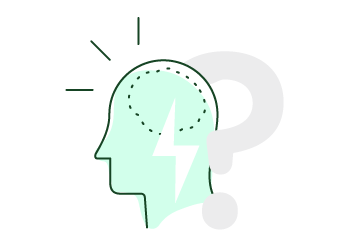Personal Productivity
The Number One Habit You Need: Self-discipline
AUTHOR: Francisco Sáez"With self-discipline most anything is possible." ~ Theodore Roosevelt

You have probably heard of the famous experiment that was conducted a few decades ago in a laboratory at Stanford University: a few children were left alone in a room and were told that they could have a candy at that time or wait until the experimenter came back, in which case they could have two candies. The experiment did not end there, since the social and cognitive skills of these children were tested some years later. The result was that, at least academically, the ones who had delayed instant gratification obtained better scores and were more popular than those who had not.
A more recent study, conducted in 2005 at the University of Pennsylvania (Self-Discipline Outdoes IQ in Predicting Academic Performance of Adolescents), determined that there was a direct correlation between the levels of self-discipline the students demonstrated and the grades they gained, even above their IQ.
Although some scientists do not entirely agree with the conclusions and methods used in these studies, it seems clear that there are factors such as intrinsic motivation and self-discipline, which can influence our performance even more than others as intelligence or memory capacity.
Self-discipline can be defined as managing our willpower to accomplish things that are usually seen as desirable, and self-control as using that same willpower to avoid doing things that are seen as undesirable or to postpone gratification. Both concepts are based on the same mechanisms and are often used interchangeably.
Nor is it clear that self-control is always good. Sometimes, lack of self-control may provide spontaneous experiences that are necessary to unleash our creativity.
In any case, it seems that getting a grip on our willpower is essential to succeed in life. For Charles Duhigg, author of The Power of Habit, turning this control into a habit would be something as having a super-power that allows you to be highly efficient and productive when necessary: “Sometimes it looks like people with great self-control aren’t working hard—but that’s because they’ve made it automatic”.
Willpower is a skill that works like a muscle: it must be trained to be strengthened and it weakens when it is not used enough. It has been shown that people who make an effort to go to the gym every day, besides being in better shape, end up smoking less, drinking less alcohol, taking less caffeine, eating less junk food, watching less television. They get depressed less and are more productive. The same results were obtained with people who had established a good habit of study or expenses control, for example. Training your willpower in one aspect of your life helps you exert it in others.
Moreover, as muscles, willpower is also depleted when we use it thoroughly. If you have made a big effort to eat something you do not like (but it is healthy) instead of something else you like (but it will raise your cholesterol level to the sky), you will probably not be able to, immediately afterwards, undertake a task you find boring (although it is important). That is why it is recommended to do the important tasks first thing in the morning, when willpower is still intact.
Sure there are good habits you want to develop and bad habits you want to eliminate, but there is a paramount habit that will help you with all others: Control your willpower and you will able to achieve any goal you set.





No comments